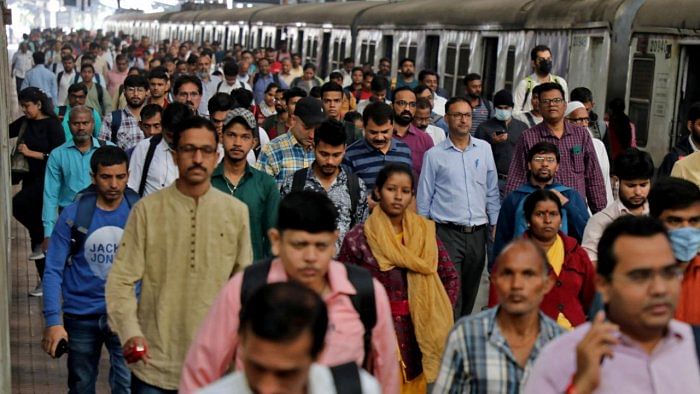
According to the UN Population Fund’s estimates, India is about to emerge as the world’s most populous country, with a population of 142.86 crore, pushing China to the second place. It is a ‘distinction’ that has been long coming, though the exact time of overtaking China is debatable. There have also been discussions on the demographic characteristics of the new India and its composition in terms of various factors like age, income levels, distribution, etc. Apart from the aggregate population, these factors will also have an influence on the policies and programmes of governments and the political and social positions of parties and groups. India has the maximum number of young people in the 15-24 age group (254 million) and this will continue to be so. There is also little doubt that India will continue to hold its position for a long time to come.
The number one position is not a great honour. Rather it presents the country with great challenges. It provides opportunities also which, unless they are utilised in time and effectively, can turn sour and become challenges. The country will have to feed, clothe, educate, and provide healthcare and employment opportunities to more and more numbers of people for years to come. Demographic dividend comes from making good use of the growing working age population. The country even now is unable to provide basic needs to large numbers of people. Therefore, unless special efforts are made for this in terms of policies and strategies in all areas of life, the expected dividend is likely to turn into a liability. Along with the need to provide facilities and opportunities for the young, there will also be the need to take care of the growing population of elderly persons.
It is the responsibility of India and Indians to avail the opportunities and face the challenges of the new situation. Failure to manage the needs of the population will lead to social strife and political discontentment, which can have serious consequences. Efficient and just management of resources is the key to managing the emerging situation. Issues like reservations, migration, political representation, distribution of resources, limits of State action and other issues are likely to attract attention and debate. Economic development which equitably covers all segments of society will ensure that population growth will not pose still greater challenges. Human development is the best family welfare plan to keep the numbers in check. The tendency to blame any one segment for population growth is born of uninformed prejudice and wrong. India has the opportunity to turn this century into the ‘Indian Century’ if it deals with its demographic challenge well and wisely.